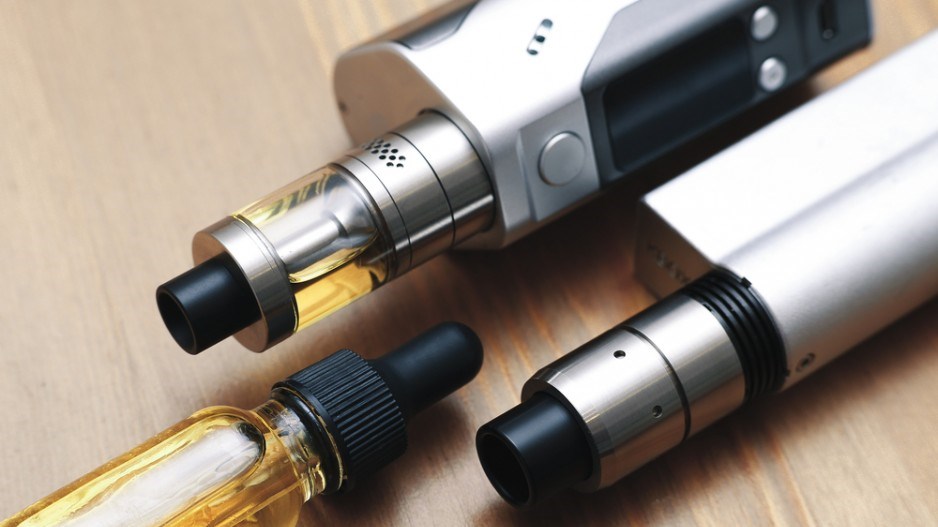What happened: the B.C. government announced November 14 that it plans to restrict access, flavours, nicotine content, packaging and advertising for vaping products.
Why this matters: Vaping has recently come under the microscope for being a health risk. Health Canada, in late October, identified five confirmed or probable cases of severe lung illness related to vaping in Quebec, New Brunswick and Nova Scotia. In the U.S., more than 1,800 cases of severe lung illness related to vaping have been reported.
The health concerns were a surprise for many given that vaping products were initially viewed as being a safer way to consume nicotine than smoking cigarettes.
B.C. will consult with stakeholders but intends to have the new regulations in place by spring 2020. The plan is to restrict the maximum amount of nicotine in vapour pods and liquid to 20 milligrams per millilitre. The products will require plain packaging and health warnings.
Companies will not be allowed to advertise the products in areas where youth congregate, such as bus shelters or community parks. Companies that sell vaping product flavours other than tobacco will be restricted to selling those products in age-restricted shops, according to the government.
To further deter vaping, Victoria plans to introduce legislation later this month to increase the provincial sales tax on vaping products to 20% from 7%. That would make B.C. the only province in Canada to introduce a specific tax rate related to vaping products.
The new tax rate would go into effect on January 1, and would be applied to all vaping devices, the substance or juice that is used with the vaping device and any vaping part or accessory. The tax will also be applied for cannabis-related vaping products.
“Some vaping manufacturers are using flavours and advertising to entice and normalize vaping for youth, introducing a new generation to very high levels of a very addictive drug,” said Adrian Dix, Minister of Health.
“As a result, youth vaping rates are rising, putting them at risk for addiction and serious illness. That's why we are bringing in the most comprehensive plan in the country, and supporting young people to end this dangerous trend.”
The B.C. government's moves were called "draconian" in a release from the Canadian Industry Council of Canada.
Its CEO, Anne Kothawala, said convenience stores have an excellent track record of selling age restricted products to adult consumers.
"Government of Canada data shows that almost 90% of youth who vape, or have tried vaping, are getting these products from 'social sources' (i.e. older siblings, family members, etc.), online purchases, and grey-market retailers that are not subject to the same regulations and enforcement oversight as convenience stores,” she said in the release. “If sales are to be restricted to adult-only environments, then vape shops will need to have somebody positioned at the door to ask for ID, like nightclubs do, to ensure that they truly are an adult-only environment."
B.C.'s measures may, however, not go far enough for some Canadians.
Last year, Research Co. looked at specific aspects of vaping legislation that had been implemented by the federal government. And earlier this year, following reports of severe lung illness related to vaping in North America, 73% of Canadians that Research Co. surveyed said they would like their own province to enact a temporary vaping ban, according to Research Co.
To prevent people from reverting back to smoking cigarettes, the government also plans to increase the tobacco tax rate by two cents as of January 1. That would bring the tax applied on cigarettes to 29.5 cents per cigarette, and 39.5 cents per gram of loose tobacco. Nicotine gum, patches and similar smoking cessation products would continue to be exempt from the provincial sales tax.




